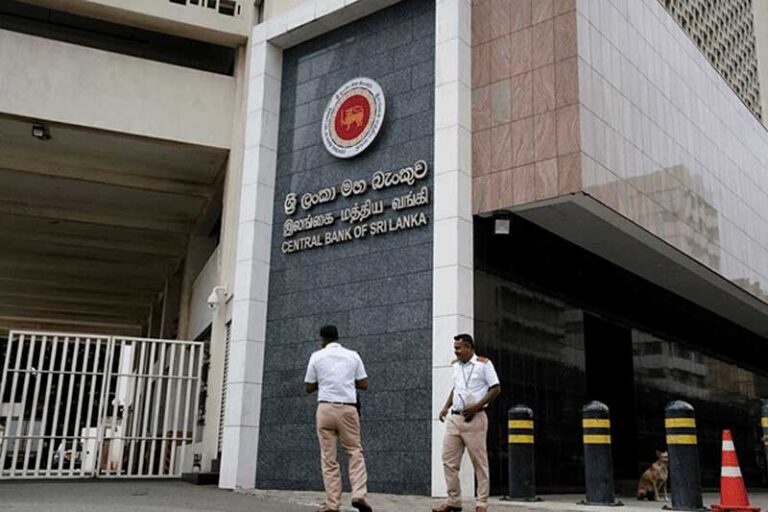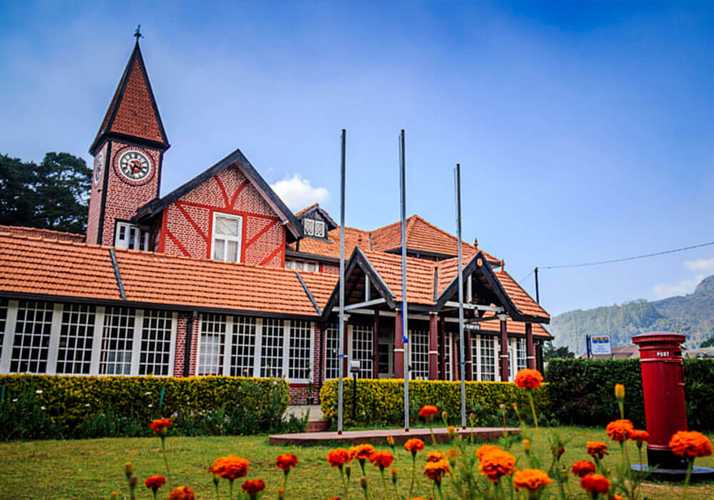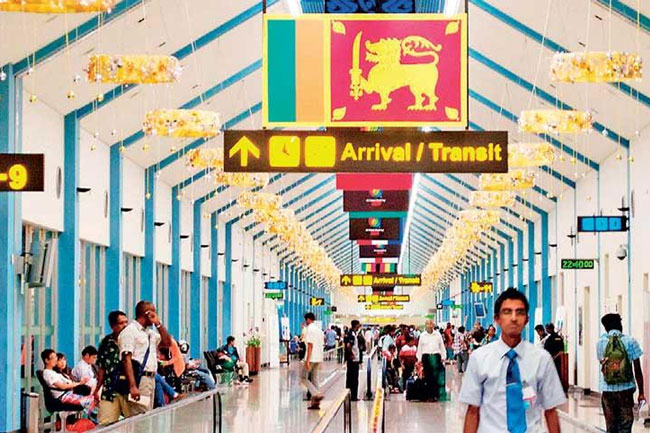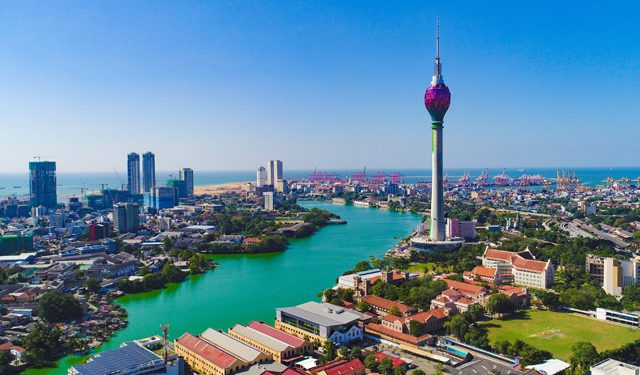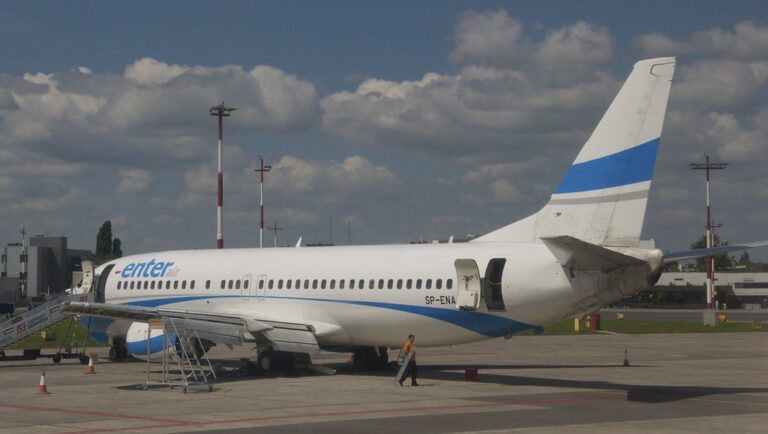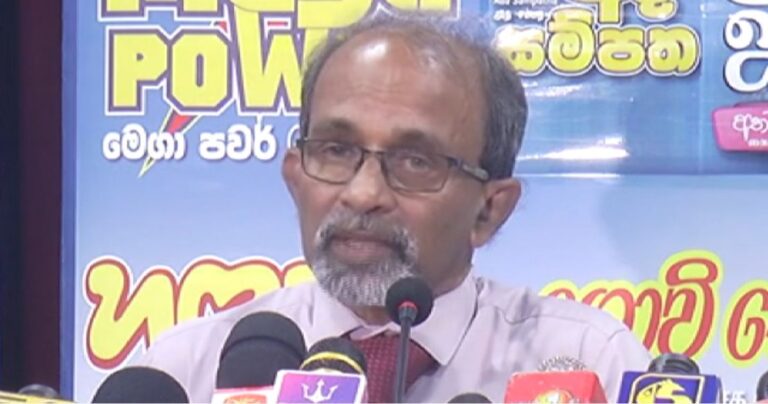By: Staff Writer
October 30, Colombo (LNW): Sri Lanka’s Cabinet has approved a major overhaul of the Central Bank’s currency management system, awarding a contract to Giesecke & Devrient Asia Pacific Ltd., a Hong Kong-based subsidiary of the global currency technology group Giesecke+Devrient (G+D), to modernize the island’s banknote operations, monitoring, and circulation management.
The decision, announced by Acting Cabinet Spokesman Vijitha Herath, follows a two-stage international procurement process aimed at selecting a specialized institution with proven expertise in secure currency systems. Out of four initial bidders, Giesecke & Devrient emerged as the most qualified after a comprehensive technical and financial evaluation conducted by the Higher-Level Standing Procurement Committee.
The proposal was submitted by President and Finance Minister Anura Kumara Dissanayake and approved by the Cabinet on Monday, marking a significant step toward the Central Bank’s broader modernization strategy.
According to officials, the contract will focus on enhancing the Central Bank’s capacity for real-time currency monitoring, improving operational efficiency, and ensuring greater security and durability of banknotes. It will also introduce digitalized tracking and forecasting systems to better manage cash demand, reduce counterfeiting risks, and optimize the cost of currency printing and distribution.
Giesecke & Devrient, headquartered in Munich, Germany, operates across 30 countries and provides secure currency and identity solutions to more than 145 central banks worldwide. Its Asia-Pacific arm, based in Hong Kong, has supported central banks in Singapore, Thailand, and the Philippines in adopting smart cash circulation and high-security printing systems.
Analysts say Sri Lanka’s move reflects an urgent need to modernize its cash management infrastructure, which has faced challenges including rising currency printing costs, aging banknote stock, and inefficiencies in distribution networks. The Central Bank spends nearly Rs. 7–8 billion annually on note printing, including imports of high-security paper and inks.
Officials emphasize that the partnership will also enhance currency traceability and data analytics, helping the Central Bank detect counterfeit flows and monitor circulation patterns more effectively. The system will integrate with the institution’s ongoing digital currency management initiatives, paving the way for a more transparent and secure monetary framework.
The project, to be implemented in phases starting early 2026, is part of Sri Lanka’s broader financial-sector modernization agenda supported by international partners and is expected to improve public confidence in the stability and integrity of the rupee.
Sri Lanka Hires Hong Kong Firm to Overhaul Currency Operations
Government determines to Save Historic Nuwara Eliya Post Office
October 30, Colombo (LNW): The Government has launched an urgent initiative to conserve and restore the 130-year-old Nuwara Eliya Post Office, one of Sri Lanka’s most iconic colonial-era landmarks, amid growing public concern over its deteriorating condition and past attempts to convert it into a private tourist hotel.
A special inter-agency meeting chaired by Health and Mass Media Minister Dr. Nalinda Jayatissa was held recently to review progress on the restoration and conservation plan. The meeting brought together representatives from the Department of Posts, Sri Lanka Tourism Development Authority (SLTDA), Department of Archaeology, Department of Buildings, Sri Lanka Navy, and other government bodies.
The discussions centred on preserving the post office’s architectural and historical integrity while upgrading its infrastructure to serve both postal operations and tourism. Built in 1894 during the British colonial era, the red-brick post office situated at the heart of Nuwara Eliya—is a beloved symbol of the town’s old-world charm and a favourite subject among local and foreign visitors alike.
The previous government’s proposal to hand over the property to a private developer had triggered widespread criticism from heritage conservationists, postal unions, and residents who feared the loss of public ownership and cultural authenticity. The current administration has firmly rejected privatisation, stating that the landmark will remain under the Department of Posts and instead be developed as a state-managed heritage attraction.
Officials at the meeting highlighted that the roof of the post office is severely damaged, causing rainwater leaks that have disrupted postal operations and damaged parts of the building. Restoration of the roof has been identified as the top priority, followed by structural reinforcements, façade preservation, and interior refurbishments all to be carried out under strict heritage conservation guidelines.
The Department of Archaeology and Department of Buildings have been tasked with preparing preliminary renovation plans, while the Sri Lanka Navy has offered technical and logistical support for the conservation project. Dr. Jayatissa instructed officials to expedite the process, ensuring that authentic materials and designs are used to maintain the building’s historic value.
Heritage experts stress that restoring the Nuwara Eliya Post Office is not only about preserving a structure but also about protecting a national symbol of Sri Lanka’s postal history and colonial architecture. The government’s decision to retain public ownership and promote the site as a heritage tourism attraction aligns with global trends of adaptive reuse where historical buildings are modernised without compromising authenticity.
Once renovations are complete, the restored post office is expected to become a flagship attraction in Nuwara Eliya’s heritage tourism circuit, balancing functionality with cultural preservation and reinforcing Sri Lanka’s commitment to safeguarding its architectural legacy.
Sri Lanka Expands Winter Air Links as Tourism Targets $3 Billion
October 30, Colombo (LNW): Sri Lanka’s tourism industry received a major winter season boost with the launch of new direct flights by Edelweiss Air, Red Wings Airlines, and Belavia, marking a renewed surge of interest from European and Russian travellers. The inaugural flights, which touched down at Bandaranaike International Airport (BIA) and Mattala Rajapaksa International Airport (MRIA) this week, highlight growing confidence in Sri Lanka’s tourism rebound and its 2025 target of earning US$3 billion in revenue.
At Katunayake, Edelweiss Air resumed its winter operations from Zurich, operating twice weekly flights every Tuesday and Saturday, linking Sri Lanka with Switzerland’s high-spending outbound market. The airline’s return comes as part of Sri Lanka’s broader strategy to deepen European connectivity and attract long-stay travellers seeking tropical destinations during the winter months.
Meanwhile, Russia’s Red Wings Airlines inaugurated its winter service to Mattala, deploying a Boeing 777-200 carrying 402 tourists. The carrier will initially operate weekly flights through March 2026, with the option to increase frequency depending on demand. The flight was welcomed with a traditional water cannon salute, while passengers were greeted with Kandyan dance performances and Ceylon Tea gifts, showcasing the island’s cultural warmth.
Adding to the momentum, Belavia, the national carrier of Belarus, also launched its winter operations to MRIA with 277 passengers on an Airbus A330-200. The airline has scheduled one weekly flight for the winter season, signaling a steady rise in Eastern European arrivals.
According to Sri Lanka Tourism Development Authority (SLTDA) data, tourist arrivals as of late October 2025 have surpassed 1.96 million, a 27% increase year-on-year, generating over US$2.15 billion in foreign exchange earnings. Officials expect total arrivals to exceed 2.5 million by year-end, placing the country on track to reach its US$3 billion annual target through a combination of new air routes, extended stays, and higher per-visitor spending.
Europe currently accounts for 38% of total arrivals, led by Germany, the UK, Switzerland, and Russia, while India remains the single largest source market. The resumption of regular European connections is expected to stabilize arrivals during the off-peak months and strengthen tourism activity in southern regions through Mattala airport, which has recently seen a revival in charter operations.
Industry analysts note that Sri Lanka’s strategy to diversify source markets and expand connectivity aligns with its post-crisis recovery plan, though challenges remain in maintaining affordability, infrastructure upgrades, and destination marketing.
The renewed airline operations are expected to significantly enhance the island’s visibility in European markets, positioning Sri Lanka as a premier year-round destination for sun, wellness, and cultural tourism.
Sri Lanka’s Free ETA Scheme Still Awaiting Legal Approval
The move was intended to simplify entry procedures and enhance the island’s appeal as a tourist destination, building on exemptions already available to travellers from China, India, Indonesia, Japan, Malaysia, Russia, and Thailand.
Currently, visitors from nations including the U.S., the U.K., France, Belgium, Canada, Australia, and South Korea must still pay US$50 for their ETA before arriving in Sri Lanka.
Minister of Foreign Affairs, Foreign Employment and Tourism, Vijitha Herath, explained that the free ETA rollout is pending parliamentary approval. “We have to submit the new gazette notification to parliament. After that we will implement the process,” he said, noting that the scheme could be finalised by the end of the year, possibly within one or two months.
The delay is linked to unresolved legal matters concerning the previous e-Visa system. Herath stated that guidance from the Attorney General is required due to an ongoing case related to revenue issues under the former online visa scheme. This has postponed the publication of the official gazette necessary to bring the free ETA into effect.
Sri Lanka’s ETA system has undergone several transitions in recent years. The original portal was temporarily replaced in April 2024 by a private e-Visa platform, which was suspended after four months. The government subsequently reinstated the official ETA website following audits and investigations into the prior contract’s financial management.
Once implemented, the free ETA is expected to cover citizens of 33 countries, including Australia, Austria, Bahrain, Belarus, Belgium, Canada, Czech Republic, Denmark, Finland, France, Germany, Iran, Israel, Italy, Kazakhstan, Kuwait, Nepal, Netherlands, New Zealand, Norway, Oman, Pakistan, Poland, Qatar, Saudi Arabia, South Korea, Spain, Sweden, Switzerland, Turkey, the United Arab Emirates, the United Kingdom, and the United States.
Until the gazette notification is officially published, travellers from these nations must continue to obtain the standard ETA and pay the required fee before entering Sri Lanka.
Sri Lanka Halves Deficit as IMF Warns of Reform Challenges Ahead
By: Staff Writer
October 30, Colombo (LNW): Sri Lanka’s fiscal outlook has shown remarkable improvement this year, with the country’s budget deficit shrinking by more than half during the first nine months of 2025 — a clear indication of recovering state finances following years of crisis and austerity. According to the Finance Ministry’s latest Fiscal Review Report, the deficit dropped 54.5% year-on-year to Rs. 441.4 billion from Rs. 970 billion recorded in the same period of 2024.
This significant progress was primarily driven by stronger revenue collection and tighter fiscal controls. Total government revenue rose by 31% year-on-year to Rs. 3.83 trillion, supported by better tax enforcement, rising imports, and improved business activity. The primary account recorded a surplus of Rs. 1.4 trillion, more than double last year’s figure, reflecting the government’s ability to cover recurrent expenses from its own income without resorting to new borrowing.
Tax revenue remained the backbone of fiscal gains. Income tax receipts rose 12% to Rs. 831 billion, while Value Added Tax (VAT) collections climbed 31% to Rs. 1.24 trillion, indicating a steady revival of consumption and imports. Customs duties contributed Rs. 1.7 trillion — nearly half of all tax income — achieving 80% of its annual target, while the Inland Revenue Department generated Rs. 1.64 trillion, or 75% of its yearly goal. Excise revenue also jumped, reaching Rs. 552 billion, almost double the previous year, supported by higher levies on alcohol, tobacco, and vehicles.
However, expenditure pressures remain a concern. Total government spending increased by 10% to Rs. 4.3 trillion, driven mainly by recurrent costs such as public sector salaries, pensions, and welfare payments. Interest payments rose 8.6% to Rs. 1.9 trillion, reflecting the heavy debt burden still weighing on the economy. Capital expenditure and net lending, in contrast, fell slightly by 2% to Rs. 455 billion, underscoring limited space for infrastructure and development projects amid fiscal constraints.
The International Monetary Fund (IMF), in its recent review, commended the government’s progress in stabilizing public finances but emphasized that long-term sustainability will depend on continued structural and fiscal reforms. The release of the next tranche under Sri Lanka’s $3 billion Extended Fund Facility (EFF) will depend on Parliament approving a 2026 Budget aligned with IMF targets for debt sustainability and fiscal discipline.
The IMF urged Colombo to enhance tax compliance, broaden the tax base, and minimize revenue leakages to sustain its recovery. It also highlighted the need for stronger governance in state-owned enterprises and transparent public financial management to prevent future fiscal slippages.
Economists warn that while the narrowing deficit signals a step toward stability, the government must avoid complacency. Without consistent reform momentum and efficient spending, Sri Lanka risks undermining the hard-won fiscal gains that are crucial to restoring investor confidence and economic growth.
Sri Lanka Reports Over 32% Rise in Tax Revenue by September 2025
October 30, Colombo (LNW): The Ministry of Finance and Planning has reported that Sri Lanka’s tax collections rose by more than 32 per cent during the first three quarters of 2025, covering the period from January 01 to September 30, compared with the corresponding period last year.
Officials attributed the growth primarily to higher Value Added Tax (VAT) on imported vehicles, increased excise duty collections, and stronger revenue performance by Customs. By the end of September, total tax revenue had reached Rs. 3,563 billion, representing a 32.5 per cent increase over the previous year.
The Ministry noted that the country’s main revenue agencies—the Department of Inland Revenue, the Department of Customs, and the Department of Excise—had collectively achieved around 78 per cent of their annual targets by the end of the third quarter.
VAT from imports rose 42 per cent to Rs. 605 billion, while excise revenue surged by 94 per cent to Rs. 552 billion. Overall VAT collections climbed 31 per cent year-on-year to Rs. 1,239 billion.
In terms of economic growth, the Ministry stated that GDP at constant prices for the first half of 2025 reached Rs. 6,360.6 billion, up from Rs. 6,068.3 billion during the same period in 2024.
Lawyer Arrested Over Alleged Role in Ganemulla Sanjeewa Murder
October 30, Colombo (LNW): A 55-year-old female lawyer has been taken into custody in connection with the killing of Ganemulla Sanjeewa, after investigations revealed that she may have aided the gunman involved in the attack.
Police confirmed that the suspect was arrested in Kadawatha two days ago and is being detained for 72 hours for further questioning.
The attorney, who had previously represented underworld figure Nadun Chinthaka—better known as “Harak Kata”—following his capture in Madagascar, is reportedly under investigation for links to several other criminal incidents. It has also emerged that she once appeared for a suspect detained in India over border violations.
Officials said inquiries are under way into her alleged misuse of her professional position, with evidence suggesting her actions may have supported organised criminal activity.
According to police findings, the lawyer is believed to have provided the assassin with two lawyer’s neckties, allowing him to disguise himself and enter the court premises unnoticed. She is also accused of supplying two law books—used to conceal the firearm—as well as a lawyer’s identification card and a vehicle pass commonly issued to legal practitioners.
Polish Airline Enter Air to Begin Charter Flights Between Warsaw and Colombo
October 30, Colombo (LNW): Polish carrier Enter Air is set to commence regular charter services between Warsaw and Colombo’s Bandaranaike International Airport (BIA) from Thursday (30), marking the fourth new airline to begin operations to Sri Lanka within the week.
According to Airport and Aviation Services (Sri Lanka) (Private) Limited, Enter Air will operate flights every ten days, with services scheduled on Thursdays and Sundays until mid-April 2026, aligning with the island’s main tourism season.
Earlier in the week, Swiss leisure airline Edelweiss, Belarusian national carrier Belavia, and Russian operator Red Wings all launched flights to Sri Lanka. While Belavia and Red Wings will serve the Mattala International Airport in Hambantota, Enter Air and Edelweiss will operate to BIA.
The new routes come as Sri Lanka experiences a surge in tourist arrivals ahead of the upcoming winter season, which typically runs from mid-November to March.
Mandatory SLS Certification for Plastic and Feeding Bottles from April 2026
October 30, Colombo (LNW): The Central Environment Authority (CEA) has announced that, from April 01, 2026, all plastic water bottles and feeding bottles sold in Sri Lanka must carry the Sri Lanka Standards (SLS) Product Certification Mark, in line with a new directive issued by the Consumer Affairs Authority.
In a public notice, the CEA stated that the regulation aims to enhance consumer safety, particularly for children, by ensuring that bottles used for storing beverages or feeding infants meet national quality standards.
According to the guidelines, reusable plastic bottles intended for carrying liquids must comply with SLS 1616 standards, while infant feeding bottles must adhere to SLS 1306 requirements.
The CEA further clarified that, under Section 12(1) of the Consumer Affairs Authority Act No. 9 of 2003, all locally manufactured bottles are required to display the SLS certification mark, whereas imported bottles must be approved by the Sri Lanka Standards Institution (SLSI).
It also cautioned that producing, selling, importing, storing, or distributing bottles that fail to meet these standards will be considered a violation of the law.
The directive follows a Gazette notification issued earlier in October by the Consumer Affairs Authority, which introduced mandatory SLS certification for reusable plastic bottles and polymer-based infant feeding bottles to regulate product safety and quality.
Political Appointees Accused of Owing Millions to National Lotteries Board
October 30, Colombo (LNW): The National Lotteries Board (NLB) has revealed that several politically connected lottery agents have failed to settle large sums owed to the institution, with some debts remaining unpaid for years.
At a briefing, NLB Chairman M.D.C.A. Perera outlined multiple cases involving unpaid dues, political interference, and possible misuse of public money. He noted that several district-level agents, appointed through political recommendations, have continued to operate without remitting their payments for extended periods.
Perera cited specific examples, including Lakisha Tharangika Rajapaksha, appointed in 2016 on the recommendation of former Education Minister Akila Viraj Kariyawasam, who reportedly owes Rs. 9.8 million dating back to 2019. Official records confirm she is related to the former minister.
Another case involves Disanayaka Mudiyanselage Geetha Nandani, who has an outstanding balance of Rs. 2.1 million since 2019. Her application was linked to an email address belonging to MP Hesha Vithanage, and documents confirm she is his spouse.
Perera stressed that withholding these funds constitutes an offence under the Public Property Act. He added that formal complaints will be lodged with the Fraud Investigation Unit and the Criminal Investigation Department (CID) to pursue legal action against those responsible.

